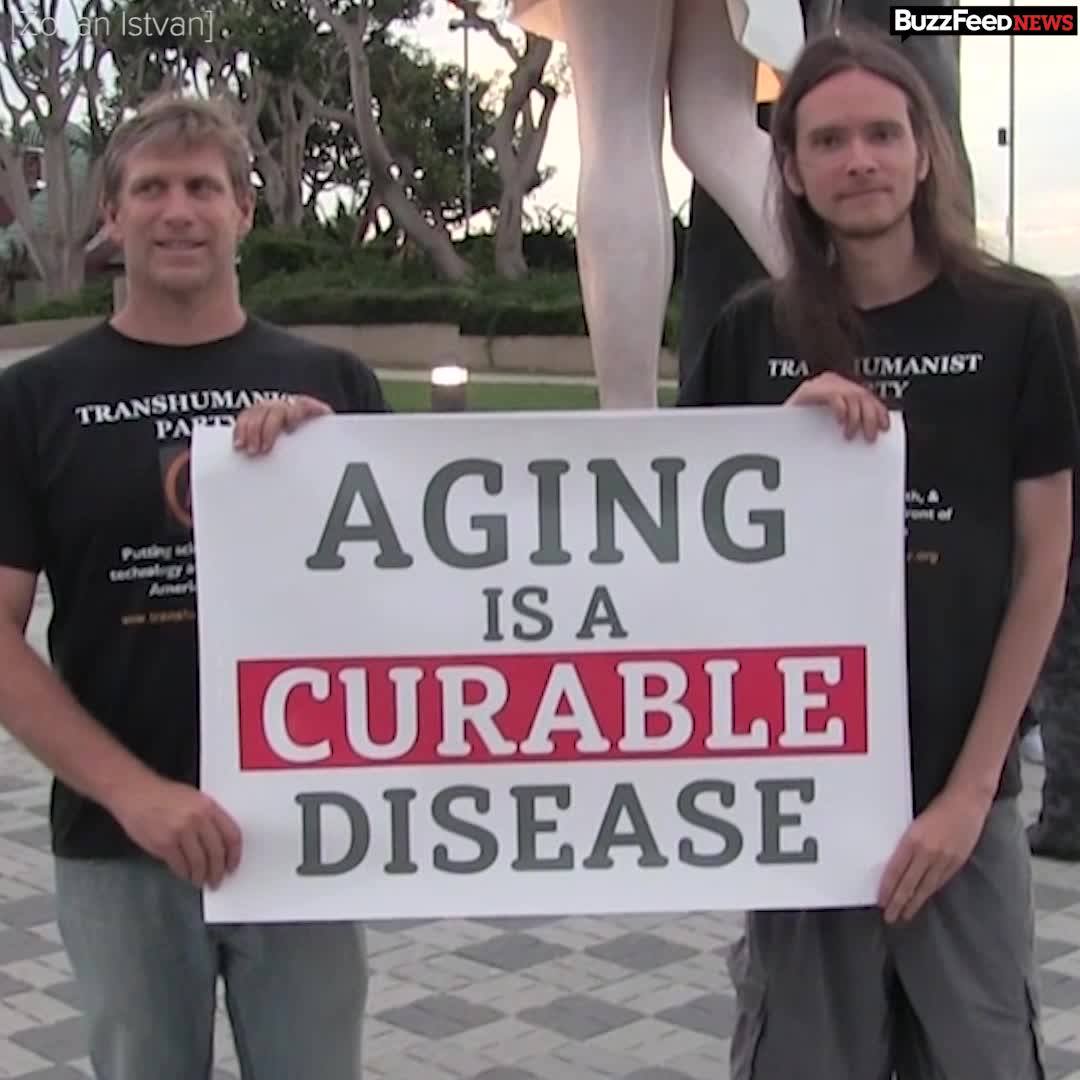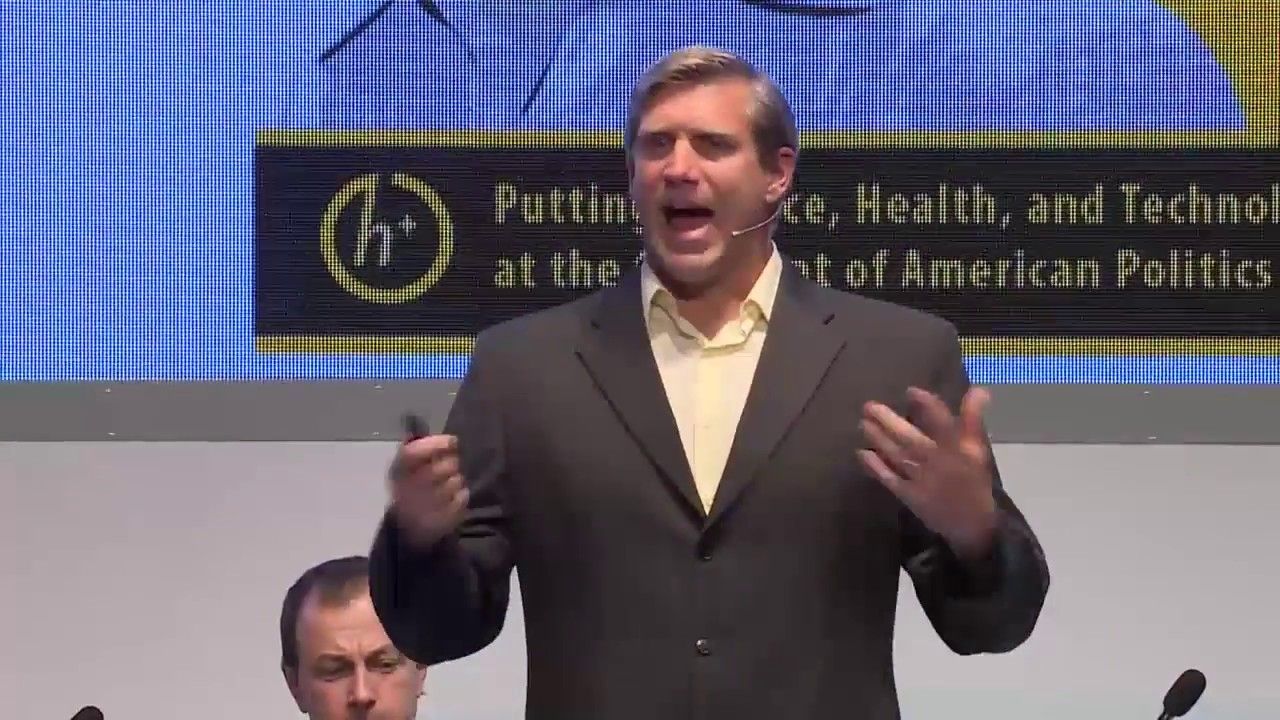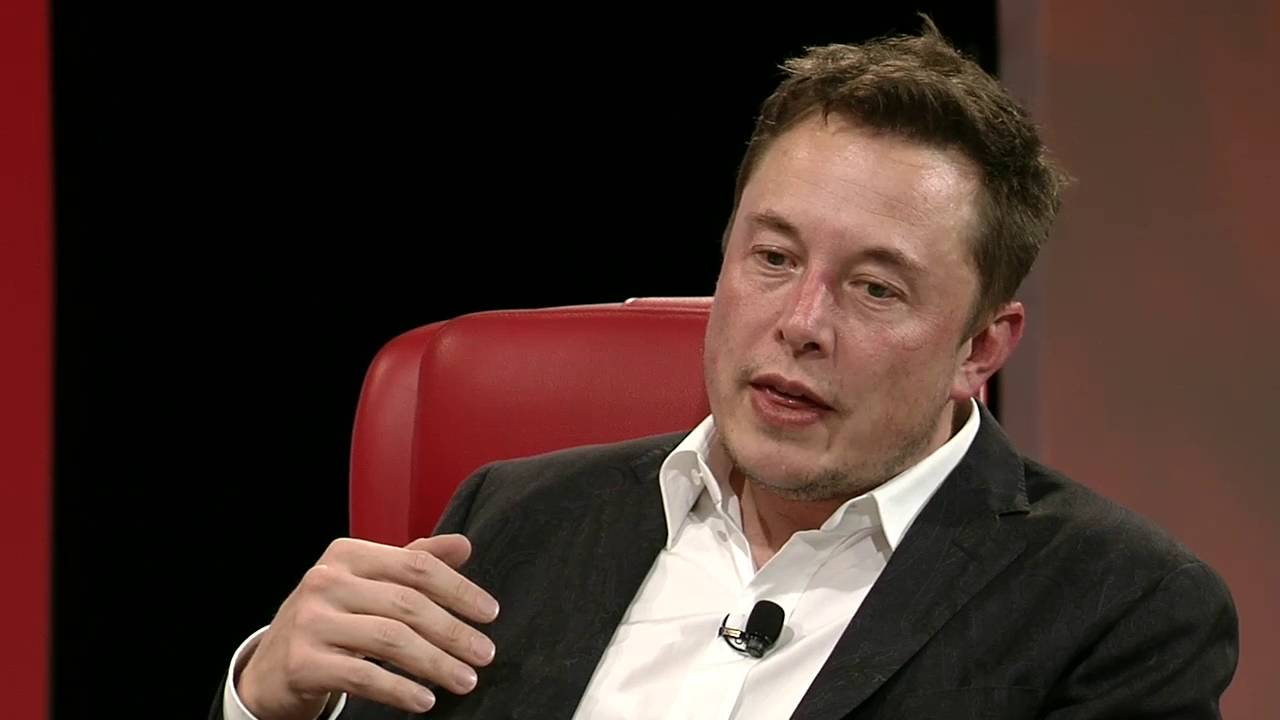Aug 9, 2017
Meet Zoltan Istvan, a transhumanist who believes “overcoming death is a priority” and wants to use technology to lengthen his lifespan
Posted by Zoltan Istvan in category: transhumanism

Transhumanists are curiosity addicts. If it’s new, different, untouched, or even despised, we’re probably interested in it. If it involves a revolution or a possible paradigm shift in human experience, you have our full attention. We are obsessed with the mysteries of existence, and we spend our time using the scientific method to explore anything we can find about the evolving universe and our tiny place in it.
Obsessive curiosity is a strange bedfellow. It stems from a profound sense of wanting something better in life—of not being satisfied. It makes one search, ponder, and strive for just about everything and anything that might improve existence. In the 21st century, that leads one right into transhumanism. That’s where I’ve landed right now: A journalist and activist in the transhumanist movement. I’m also currently a Libertarian candidate for California Governor. I advocate for science and tech-themed policies that give everyone the opportunity to live indefinitely in perfect health and freedom.
Politics aside, transhumanism is the international movement of using science and technology to radically change the human being and experience. Its primary goal is to deliver and embrace a utopian techno-optimistic world—a world that consists of biohackers, cyborgists, roboticists, life extension advocates, cryonicists, Singularitarians, and other science-devoted people.
Continue reading “The Growing World of Libertarian Transhumanism” »

As one of the most visible 2016 presidential candidates—and now as a leading 2018 contender for Governor in California—Zoltan Istvan has been the “Science Candidate,” traveling around America to discuss the issues of transhumanism and radical longevity that are transforming humanity. Soon the issues of AI, genetic editing, designer babies, bionic organs, automation, and neural prosthetics will challenge and dominate political discourse. America must embrace radical science with bold polices.

The study of consciousness and what makes us individuals is a topic filled with complexities. From a neuroscience perspective, consciousness is derived from a self-model as a unitary structure that shapes our perceptions, decisions and feelings. There is a tendency to jump to the conclusion with this model that mankind is being defined as self-absorbed and only being in it for ourselves in this life. Although that may be partially true, this definition of consciousness doesn’t necessarily address the role of morals and how that is shaped into our being. In the latest addition to The Galactic Public Archives, Dr. Ken Hayworth tackles the philosophical impact that technologies have on our lives.
Tags: Brain, conciousness, connecting, connections, future, hayworth, i, identity, individual, ken hayworth, mankind, me, Neuroscience, persona, personal identity, science, video
But a British PhD candidate has warned of the darker side of a transhumanist future.
Sociologist Alex Thomas of East London University believes that transhumanism will further enforce a societal obsession with “progress” and “efficiency” at the expense of social justice and environmental sustainability. In an article published this week in The Conversation, Thomas argues that unbridled technological progress, in which technology “become more intrusive and integrate seamlessly with the human body”, could lead to a loss of basic societal values such as compassion and a concern for the environment.
Transhumanism and advanced capitalism are two processes which value “progress” and “efficiency” above everything else. The former as a means to power and the latter as a means to profit. Humans become vessels to serve these values. Transhuman possibilities urgently call for a politics with more clearly delineated and explicit humane values to provide a safer environment in which to foster these profound changes.”
Cyborgs have arrived and are living among us. From pacemakers to bionic eyes to cochlear implants, these are all examples of biohacking.

In step forward for Elon Musk’s neural lace and transhumanists everywhere, a new paper published this month by researchers at Harvard University reports on the successful implantation of an electronic neuromorphic mesh in the brains of mice without triggering an immune response.
Neuroprostheses show promise in the treatment of Alzheimer’s Disease, Parkinson’s Disease, epilepsy, traumatic brain injury and for the creation of brain-machine interfaces such as the neural lace, but a major stumbling block for researchers has been the propensity of these implants to induce an immune response, inflammation and scaring in the brain, severely limiting their potential use.
Robert Stark and co-host Sam Kevorkian talk to Zoltan Istvan about his proposal for a California State Basic Income. Zoltan is a Trans-Humanist and futurist writer, philosopher, and journalist. He was the Transhumanist Party’s candidate for president in 2016, has written for Vice, Newsweek, the Huffington Post, and Psychology Today, was a reporter for the National Geographic Channel, and is the author of The Transhumanist Wager.
Topics:
The rapid development of so-called NBIC technologies – nanotechnology, biotechnology, information technology and cognitive science – are giving rise to possibilities that have long been the domain of science fiction. Disease, ageing and even death are all human realities that these technologies seek to end.
They may enable us to enjoy greater “morphological freedom” – we could take on new forms through prosthetics or genetic engineering. Or advance our cognitive capacities. We could use brain-computer interfaces to link us to advanced artificial intelligence (AI).
Nanobots could roam our bloodstream to monitor our health and enhance our emotional propensities for joy, love or other emotions. Advances in one area often raise new possibilities in others, and this “convergence” may bring about radical changes to our world in the near-future.
O n a recent evening at a start-up hub in Spitalfields, London, journalist and author Jamie Bartlett spoke to a small group of mostly under 40, mainly techie or creative professionals about his book Radicals: Outsiders Changing the World. The book, which Bartlett started to research in 2014, before Brexit and Trump, chronicles his time with a series of different radical groups, from the Psychedelic Society — who advocate the “careful use of psychedelics as a tool for awakening to the unity and interconnectedness of all things” — to Tommy Robinson, co-founder of the unabashedly far-right English Defence League, to the founder of Liberland, a libertarian nation on unclaimed land on the Serbian/Croatian border, to Zoltan Istvan, who ran as US transhumanist presidential candidate on a platform of putting an end to death. He campaigned by racing around America in a superannuated RV which he’d modified to look like a giant coffin, dubbed “the Immortality Bus.” His efforts were in vain, and illegal, as it turned out: his campaign was in breach of the US’ Federal Electoral Commission rules.
Bartlett’s book has been damned with faint praise — he has been called “surprisingly naive about politics,” and defining ‘radical’ so broadly as to make the term “meaningless.” The general consensus goes that Bartlett’s journey through the farthest-flung fringes of politics and society is entertaining and impressively dispassionate, but not altogether successful in making a clear or convincing case for radicals or radicalism. But at the talk that night Bartlett challenged what he sees as the complacent acceptance and defense of our current political and governmental systems, institutions and ideas, of the kind of technocratic centrism that prevailed throughout the global North until very recently. Perhaps they need some radical rethinking. Many of the radicals Bartlett spent time with may be flawed, crazy or wrong — literally, legally and morally — but they can also hold up mirrors and magnifying glasses to political and social trends. And sometimes, they can prophesize them…
Bartlett began the evening by saying, “If democracy were a business, it would be bankrupt.” A provocative statement, but one that he backs up. He pointed to research showing that only 30% of those born after 1980 believe that it is essential to live in a democracy. That rate drops steadily with age. A closer look at the research around peoples’ attitudes reveals widespread skepticism towards liberal institutions and a growing disaffection with political parties. Freedom House’s annual report for 2016 shows that as faith in democracy has declined so too have global freedoms — 2016 marks the “11th consecutive year of decline in global freedom.” While a lot of attention has been given to violent polarization, populism and nationalism rising out of anger at demographic and economic changes, Bartlett suggests that perhaps comfort and complacency are culprits too, and he is not the only one: only last week Financial Times columnist Janan Ganesh took up a similar theme.
Continue reading “Rethinking Radical Thoughts: How Transhumanists Can Fix Democracy” »